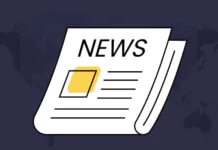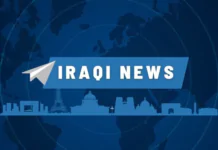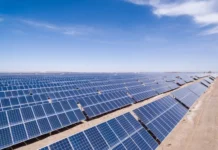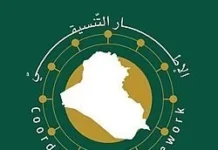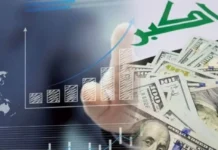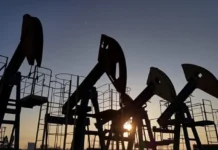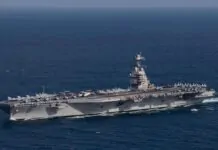Good Morning ,
Israel’s Gaza War & Trump-Netanyahu Talks Reshape Global Alignments
Diplomatic recognition, financial leverage, and post-war governance point to a broader restructuring of the global order.
Israeli Forces Advance as Diplomacy Intensifies
As Israeli forces deepen their push into Gaza ahead of planned White House talks between Donald Trump and Benjamin Netanyahu, the military campaign is colliding with urgent international diplomacy. The U.S. president has signaled he will propose a new Gaza peace framework, but his ability to deliver rests on whether allies and Arab states align behind it.
Recognition of Palestine Challenges U.S. Policy
▪️ Britain, France, Canada, and Australia have formally recognized Palestinian statehood, testing Trump’s pro-Israel stance.
▪️ This shift strengthens Palestine’s claim to international legitimacy and creates new pathways for financial aid, trade, and institutional engagement.
▪️ Diplomatic recognition here is more than symbolism — it directly reshapes the channels through which global finance flows.
Palestinian Leadership Seeks Cooperation
Palestinian President Mahmoud Abbas has pledged cooperation with Trump, France, Saudi Arabia, and others on a U.N.-backed peace plan — despite rejecting Hamas’s actions. This move aligns the Palestinian Authority with a broad diplomatic coalition, signaling readiness for structured governance and international funding flows.
Post-War Governance and Arab Roles
▪️ The U.S. has discussed with Gulf states the possibility of temporary administration of Gaza after the war.
▪️ Such arrangements would require new funding frameworks, governance structures, and trade guarantees — effectively building parallel financial systems.
▪️ European and Muslim-majority countries are also considering stabilization missions, adding layers of international oversight.
Regional Pushback and Humanitarian Costs
▪️ Egypt, Saudi Arabia, the UAE, and Oman have warned of regional collapse and demanded recognition of Palestine.
▪️ The humanitarian toll and infrastructure destruction risk triggering sanctions, trade realignments, and redirection of international aid.
Why This Matters
The Israel-Palestine conflict is no longer just about territory — it is now a fault line in global financial structuring.
- Diplomatic recognition of Palestine re-channels financial legitimacy.
- Post-war governance will create new funding mechanisms and oversight institutions.
- The humanitarian and economic burden forces nations to redirect capital toward reconstruction and relief.
- Allies diverging from U.S. policy signals a realignment of global alliances that will spill into trade, aid, and sanctions.
This is not just politics — it’s global finance restructuring before our eyes.
@ Newshounds News™ Exclusive
Sources:
- Reuters – Israeli forces advance ahead of Trump-Netanyahu Gaza war talks
- Reuters – Trump to push elusive Gaza peace in talks with Netanyahu
- Reuters – U.S. allies embrace Palestinian statehood, testing Trump’s Israel policy
- Reuters – Palestinian President Abbas affirms readiness to work with Trump, others
- Reuters – U.S. has talked with Gulf states about post-war Gaza administration
- Reuters – Israeli tanks push deeper into Gaza City as Trump talks peace
- AP News – Arab states warn of collapse, urge recognition of Palestine
~~~~~~~~~
NATO & EU React to Russia’s 12-Hour Barrage: A Signal of Deepening Global Fractures
The intense Russian aerial assault on Ukraine and the strong responses from allies are reshaping how security, diplomacy, and finance interact — part of the larger global restructuring underway.
Russia’s Assault, NATO’s Flight Response
- Russia launched a 12-hour barrage over Ukraine with over 40 cruise missiles and nearly 600 drones, hitting regions including Kyiv, Zaporizhzhia, Mykolaiv, and Odesa. Civilian infrastructure was damaged; lives were lost.
- NATO scrambled fighter jets and raised alerts as missile and drone threats mounted. Ukraine’s President Zelenskiy condemned the strike as “vile and cowardly,” urging stricter sanctions on Russian oil and increased military aid from allies.
EU Allies Step Up, Propose Regional Defense Measures
- President Volodymyr Zelenskiy proposed creating a joint aerial defense shield with European allies to protect against ongoing Russian missile and airspace incursions. Europe responded with calls for more robust defense cooperation, particularly along NATO’s eastern flank.
- A “drone wall” initiative is gaining traction: EU defense ministers agreed to strengthen detection and interception of drones along borders, focusing first on eastern member states. This includes investment in defense industry capacity and rapid deployment.
NATO’s Strategic Tightening and Tensions
- Zelenskiy sharply criticized what he called NATO’s “weak reaction” to repeated Russian violations of airspace by drones and aircraft; some members are now pressing for more assertive rules of engagement. (Newsweek)
- Some NATO allies have activated Article 4 (consultations) in response to airspace breaches; others are reinforcing eastern defenses, deploying jets and missile defense resources closer to borders with Russia.
Russia’s Pushback & Risk of Escalation
- Russia has warned that any aggression against its airspace will be met with “decisive response.” Moscow denies some of the accusations of breaching NATO airspace but claims that western support for Ukraine is making the conflict more dangerous. (Reuters)
- Moscow also views proposals like Ukraine’s potential NATO membership and enhanced defense cooperation among EU states as part of what it sees as a broader encroachment, raising the risk of miscalculation.
How This Fits Into Global Political and Financial Restructuring
🔹 Security & Finance Converge
▪️ Military escalation carries immediate fiscal consequences: more spending on air defense, rebuilding damaged infrastructure, hosting displaced populations. This shifts national budgets and foreign aid flows, reshaping which countries become donors vs. dependents.
▪️ Countries investing heavily in defense (Eastern Europe, Baltic states, Poland, etc.) may see accelerated development of their defense-industrial sectors—part of a broader economic realignment away from dependency on traditional supply lines.
🔹 Legitimacy, Recognition & Power Structures
▪️ Zelenskiy’s calls for collective defense, EU support, and formal recognition of Ukraine’s threats underscore how legitimacy in international law and alliances translates into geopolitical and financial power.
▪️ As EU and NATO tighten their frameworks, access to trade, investment, and diplomatic influence hinges on being regarded as a trustworthy partner in a volatile environment.
🔹 De-Dollarization & Alt Finance Pressure
▪️ As sanctions intensify and the costs of war escalate, Russia (and those aligned with or sympathetic to it) are likely to lean even more on non-USD financial mechanisms, regional partnerships, and alternative payment systems.
▪️ For Ukraine and its allies, securing financial backing, loans, arms, and post-war recovery packages involves navigating sanction regimes and often collateralizing autonomy in how they engage with capital flows.
Why This Matters
Russia’s barrage and the strong reactions from NATO and EU allies expose fissures in the old security-and-finance order. What we’re seeing is the emboldened assertion of regional defense autonomy, financial realignments driven by necessity, and the redefinition of what it means to protect sovereignty and legitimacy.
This is not just politics — it’s global finance restructuring before our eyes.
@ Newshounds News™ Exclusive
Sources:
- Reuters – Ukraine’s Zelenskiy proposes joint aerial shield with European allies
- The Guardian – Hundreds of Russian missiles and drones hit Ukraine; Poland scrambles jets
- Reuters – Russia warns NATO & EU any aggression will be met with decisive response
- Newsweek – Zelensky criticizes ‘weak’ NATO response to air violations
- AP News – EU defense ministers agree on “drone wall” initiative ~~~~~~~~~Seeds of Wisdom Team RV Currency Facts Youtube and Rumble
Newshound’s News Telegram Room Link
Follow the Gold/Silver Rate COMEX
Follow Fast Facts
Seeds of Wisdom Team™ Website
